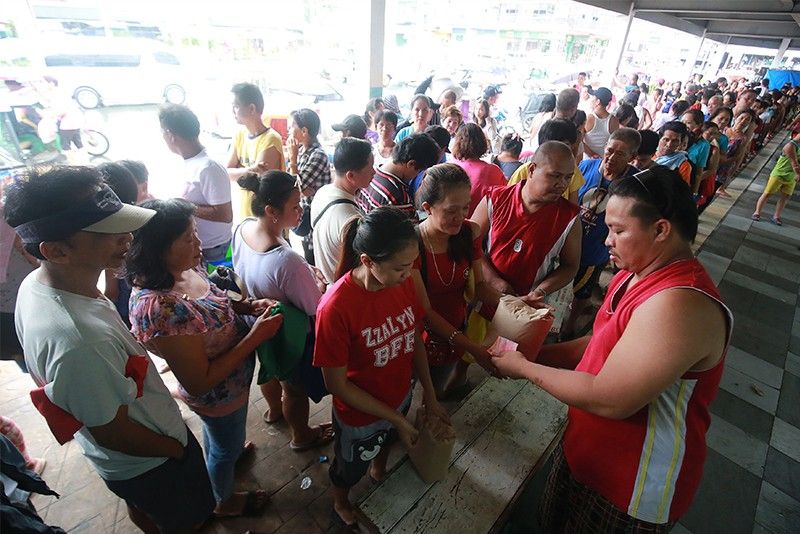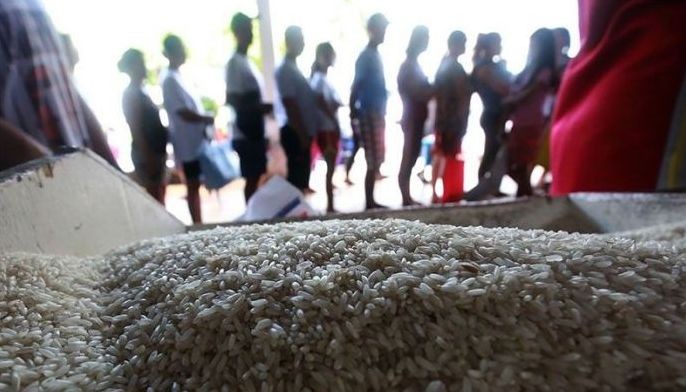Duterte approves 'unimpeded' importation of rice to combat inflation

Government to impose price caps on chicken, pork
MANILA, Philippines — President Rodrigo Duterte has approved the “unimpeded” importation of rice in a bid to douse inflation that is now the hottest in Asia.
At a press conference Tuesday, presidential spokesperson Harry Roque said Duterte ordered the liberalization of rice importation during a Cabinet meeting last Monday, where policymakers had a “fierce” discussion on possible solutions to the country’s inflation problem.
Roque explained that under the presidential order, individuals and businesses can import additional volumes of the crop from abroad but will have to pay the tariffs.
The Palace official added that the National Food Authority will no longer have a say on the amount of rice to be imported and on individuals who will be allowed to buy cheap rice from other countries.
“He (Duterte) wants to flood the market with rice so that even of the price of crude and other oil prices should go up further that the people would have access to affordable rice,” Roque said. “There are no more restrictions as long as tariffs are paid. We will use the collected tariffs to help Filipino rice farmers."
Prices began soaring at the start of the year after the government slapped higher excise taxes on fuel and other commodities. The price hikes quickly spread to cover more goods like rice amid persistent supply bottlenecks, while a weakening currency added to the country’s inflation woes.
Rice is a Filipino main staple and pivotal political commodity in the Philippines. It is a heavy item in the basket of goods and services used to compute inflation and accounts for 20 percent of the consumption of low-income households.
In September, inflation surged to a fresh nine-year high of 6.7 percent, spurring calls for another interest rate hike to anchor elevated inflation expectations and temper consumer demand that could have lifted prices.
But some analysts have pointed out that monetary policy tightening alone is not enough to bring down inflation, as higher prices in the Philippines are still supply-driven.
To combat multi-year high inflation, multiple reports say the Department of Trade and Industry and the Department of Agriculture will sign an agreement imposing suggested retail prices on chicken and pork, on top of other measures that seek to stabilize prices of farm products.
According to Roque, the Palace will still support the Rice Tariffication Bill, but will not wait for the measure to be passed as surging prices continue to crush Filipino families’ budgets.
EXPLAINER: Rice tariffication: What it is and how it can ease inflation
“In effect, we did not wait for the [rice tariffication bill]. The consensus was there was no need for anything,” Duterte’s spokesman said.
“The president can already order the liberalization of rice importation because again the language found in relevant instruments is ‘minimum access volume.’ So there is no maximum,” he added.
- Latest
- Trending
























